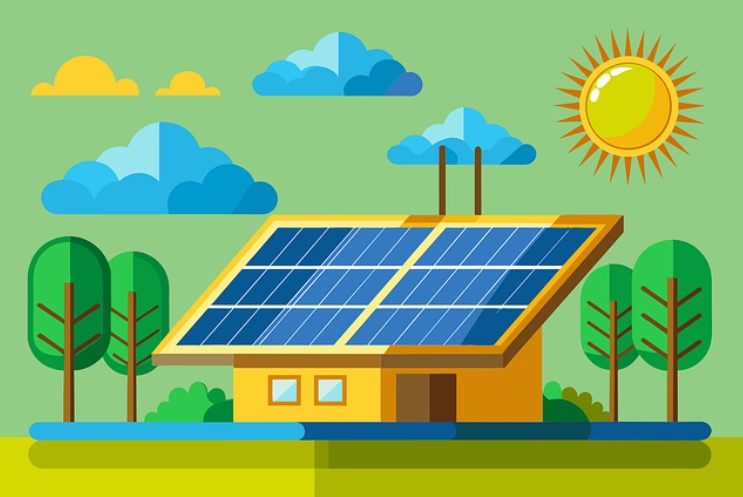Glass block windows have been a popular choice for homeowners and businesses due to their aesthetic appeal, privacy benefits, and durability. However, one of the most common questions surrounding glass block windows is whether they are energy efficient. In this article, we’ll explore the energy efficiency of glass block windows, their advantages, how they compare to traditional windows, and tips on maximizing their insulating properties.
Understanding Energy Efficiency in Windows
Energy efficiency in windows refers to their ability to regulate indoor temperatures by minimizing heat loss in the winter and heat gain in the summer. Windows play a crucial role in a building’s overall energy consumption, and selecting the right type can lead to reduced energy bills and improved comfort.
How Energy Efficient Are Glass Block Windows?
Glass block windows offer a degree of energy efficiency, but their performance depends on several factors:
- Thermal Insulation: Standard glass block windows have a higher insulation factor than single-pane windows but may not be as effective as double- or triple-pane windows with insulating gas fills.
- Sealed Construction: The mortar or sealant used to install glass blocks prevents air leaks, reducing drafts and improving indoor climate control.
- Heat Absorption and Reflection: Some glass blocks are designed with coatings that help reflect or absorb heat, improving their insulating properties.
- UV Protection: Certain glass block varieties can block UV rays, helping to protect furniture and flooring from fading due to sun exposure.
Benefits of Glass Block Windows for Energy Efficiency
- Improved Insulation – Glass block windows generally offer better insulation than traditional single-pane windows, reducing heat transfer.
- Elimination of Drafts – The airtight installation helps eliminate drafts, keeping indoor temperatures stable.
- Natural Light Without Heat Loss – These windows allow natural light in while maintaining insulation, reducing the need for artificial lighting.
- Low Maintenance – Unlike traditional windows, glass blocks do not require weather stripping or additional insulation layers.
- Enhanced Security – The thickness and design make them more difficult to break compared to standard windows.
Glass Block Windows vs. Traditional Windows
| Feature | Glass Block Windows | Traditional Windows (Double-Pane) |
|---|---|---|
| Energy Efficiency | Moderate | High |
| Insulation | Good | Excellent |
| Air Leaks | Minimal | Possible with poor sealing |
| UV Protection | Available in some models | Available in most models |
| Aesthetic Appeal | Unique and Stylish | Versatile |
How to Improve the Energy Efficiency of Glass Block Windows
If you have or are considering installing glass block windows, here are some tips to enhance their energy efficiency:
- Opt for Argon-Filled Glass Blocks: Some manufacturers offer glass blocks filled with argon gas to improve insulation.
- Choose Low-E Coatings: Low-emissivity (Low-E) coatings reduce heat transfer and UV exposure.
- Use Double-Pane Glass Blocks: Some advanced glass block options include a second pane for better insulation.
- Ensure Proper Installation: Professional installation with high-quality mortar or sealant prevents air leaks.
- Combine with Other Insulation Methods: Adding window coverings, such as thermal curtains, can further enhance efficiency.
When Are Glass Block Windows a Good Choice?
Glass block windows are ideal for specific areas where privacy, durability, and moderate energy efficiency are key considerations. Common places to install them include:
- Bathrooms: Provides privacy while allowing natural light.
- Basements: Helps secure basement windows against break-ins and drafts.
- Garages: Adds an extra layer of insulation.
- Hallways or Stairwells: Enhances lighting while minimizing energy loss.
Frequently Asked Questions (FAQs)
1. Do glass block windows reduce heating and cooling costs?
Yes, to some extent. While not as efficient as double- or triple-pane windows, their sealed construction helps reduce drafts and maintain indoor temperatures.
2. Can glass block windows be energy efficient in cold climates?
Yes, especially if they are argon-filled or have Low-E coatings. However, they may not provide as much insulation as high-end energy-efficient windows.
3. Are glass block windows better than traditional windows for energy savings?
They offer better insulation than single-pane windows but are less efficient than modern double- or triple-pane windows with gas fills and Low-E coatings.
4. How can I make my existing glass block windows more energy efficient?
You can enhance efficiency by adding thermal curtains, applying window films, or using insulated window coverings.
5. Are glass block windows environmentally friendly?
Yes, they are durable, require less maintenance, and can help reduce energy use when installed correctly, making them a sustainable choice.
By understanding the energy efficiency of glass block windows and implementing additional insulation strategies, you can make an informed decision about whether they are the right choice for your home or business.
Conclusion
Glass block windows provide moderate energy efficiency compared to traditional double- or triple-pane windows. While they may not be the best choice for whole-home window replacements in extreme climates, they offer numerous advantages such as privacy, durability, and low maintenance. By choosing the right type of glass block windows and ensuring proper installation, homeowners can maximize their energy-saving potential.

